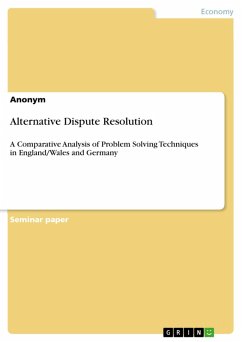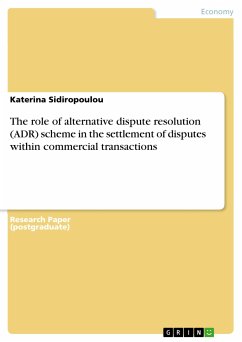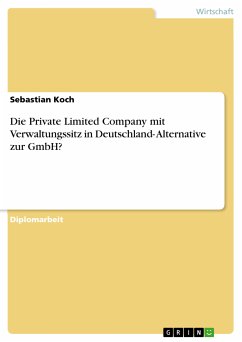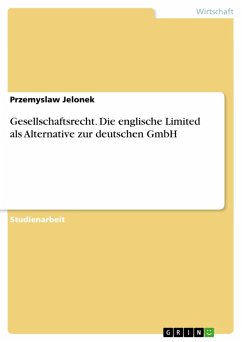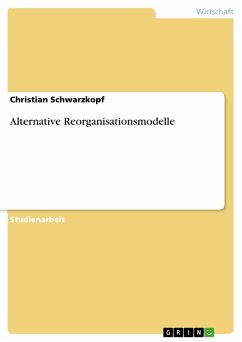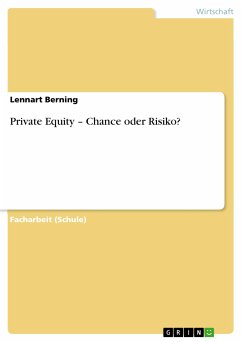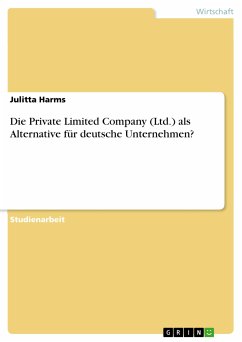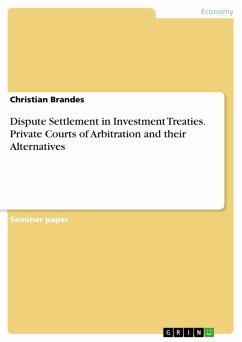Seminar paper from the year 2011 in the subject Business economics - Law, grade: 1,0, Anglia Ruskin University, language: English, abstract: "The spiralling costs of contentious litigation, and the delays, uncertainties and lasting acrimony which such litigation occasions, have however over the past 20 years led to the increasing recognition by the judiciary, legal advisers and the disputants themselves that contentious litigation itself should be recognised as the option of last resort [...]" Sir Gavin Lightman, Royal Courts of Justice, Strand, London, October 2001 The above quote addresses the problem of the expensive and long lasting process of litigation in courts, which has not only been the case in England and Wales but also in Germany. In this paper different techniques for resolving disputes outside traditional court in both countries will be examined. As a solution for the named problem Alternative Dispute Resolution ("ADR") made its way into being an option for solving disputes. By definition "ADR is a form of facilitated settlement that is confidential and without prejudice. Consequently the contents of the process need not usually be disclosed to a court. Because it is a form of settlement process the client is not at risk of being bound to an unfavourable outcome by a third party's decision" (Caller, 2002, p. 1). It is then voluntary to enter into a binding agreement as long such is reached. If ADR fails, the case can still be carried to the court, normally without disclosing the reasons of failure. It should be stressed out that participants do not run the risk of losing control of the process, as it is without prejudice and non-binding - contrary to a judgment at trial (Caller, 2002, pp. 1-2). It is important to keep in mind that ADR is only an option for solving disputes since "everyone has the right to recognition everywhere as a person before the law" (Art. 6, UDHR). Moreover ADR primarily concentrates on resolving personal disputes between parties where their claims are not massive or even perhaps try to resolve other issues involving family relationships, child custody and issues concerning land ownership (Keenan & Riches, 2007). This paper concentrates on the use of ADR in business.
Dieser Download kann aus rechtlichen Gründen nur mit Rechnungsadresse in A, B, BG, CY, CZ, D, DK, EW, E, FIN, F, GR, HR, H, IRL, I, LT, L, LR, M, NL, PL, P, R, S, SLO, SK ausgeliefert werden.

